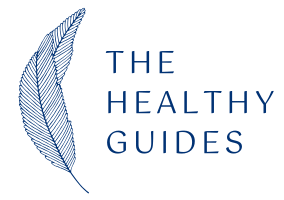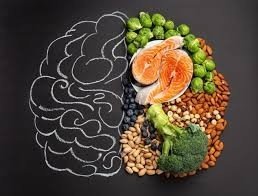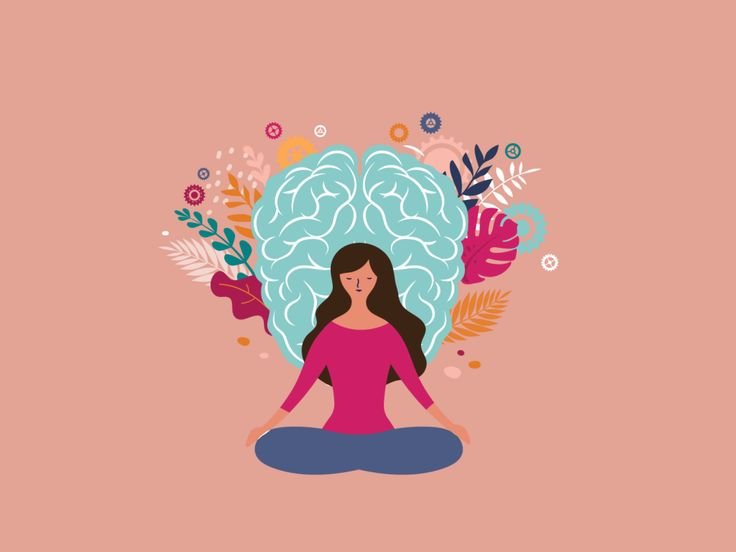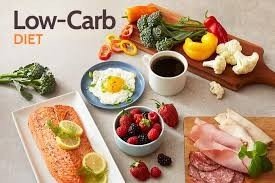Nutritional Psychology: How Food Calms Anxiety
Introduction: When Food Becomes Therapy
If you’ve ever demolished a tub of ice cream mid-panic attack, you already know that foods to reduce anxiety aren’t just a trend—they truly affect how you feel. Nutritional psychology studies how diet influences mental health, and when it comes to anxiety, the right foods can calm your nervous system while the wrong ones may intensify it.
This ultimate guide merges science with practicality. We’ll explore the gut-brain connection, spotlight foods that calm anxiety, break down nutrients like magnesium and probiotics, review foods to avoid, and even give you a 7-day diet plan designed for stress relief. Think of this as your nutritional anxiety survival kit—no prescription required.
The Gut-Brain Connection: How Your Diet Affects Anxiety
Your gut and brain are on a constant group chat. The microbiome (the collection of bacteria living in your gut) influences neurotransmitters like serotonin and GABA—both key for relaxation.
- Healthy gut = calmer mind
- Dysbiosis (imbalanced gut bacteria) = higher stress, anxiety, and brain fog
Probiotics (fermented foods like yogurt, kimchi, kefir) and prebiotics (fibers in garlic, bananas, oats) can significantly reduce anxiety by improving gut health.
Key takeaway: A happy gut = a calmer you.
Foods to Reduce Anxiety Naturally
Nature offers plenty of anxiety-fighting foods that nourish both brain and gut.
- Leafy greens (magnesium + folate)
- Fatty fish (omega-3 fatty acids for brain health)
- Nuts and seeds (zinc, magnesium, tryptophan)
- Berries (antioxidants to fight oxidative stress)
- Green tea (L-theanine + antioxidants)
- Fermented foods (probiotics for gut balance)
These foods don’t just prevent nutrient deficiencies—they actively regulate mood and stress response.
What to Eat to Calm Anxiety: A Nutritionist’s Guide
A nutritionist’s rule of thumb for anxiety management is balance:
- Complex carbs → steady blood sugar = steady mood
- Protein → amino acids for neurotransmitter production
- Healthy fats → brain cell structure + inflammation control
- Hydration → prevents fatigue and irritability
Nutritionist tip: Avoid long gaps between meals. Small, balanced meals every 3–4 hours help prevent the blood sugar crashes that mimic panic symptoms.
How Sugar Affects Anxiety (And What to Eat Instead)
Sugar is anxiety’s sneaky sidekick. Here’s why:
- Blood sugar spikes trigger insulin surges → energy crash → jittery, anxious feelings.
- Inflammation from excess sugar impacts brain function.
- Gut microbiome imbalance (sugar feeds “bad” bacteria) disrupts neurotransmitter production.
What to eat instead:
- Fresh fruit (natural sugars + fiber)
- Dark chocolate (in moderation, magnesium-rich)
- Nuts with dates (protein + healthy fats slow glucose spikes)
- Herbal teas for sweet cravings
The Best Magnesium-Rich Foods for Anxiety Reduction
Magnesium = your nervous system’s relaxation mineral. Deficiency often shows up as muscle tension, restlessness, or anxiety.
Top magnesium-rich foods:
- Spinach, kale
- Pumpkin seeds
- Almonds, cashews
- Avocado
- Black beans
- Dark chocolate (85% or higher)
Pro tip: Try a magnesium-rich snack in the evening—like avocado toast with pumpkin seeds—to support calm sleep.
Probiotics for Anxiety: Can Gut Health Calm Your Mind?
Studies suggest probiotics may lower cortisol and improve anxiety symptoms. Strains like Lactobacillus rhamnosus and Bifidobacterium longum are particularly promising.
Best probiotic foods:
- Yogurt with live cultures
- Kefir
- Sauerkraut
- Kimchi
- Miso
- Tempeh
Pair them with prebiotics (like onions, garlic, oats) to fuel their growth.
Foods to Avoid if You Have Anxiety [A Detailed Guide]
- Caffeine – overstimulates the nervous system.
- Refined sugar – spikes and crashes mimic anxiety symptoms.
- Alcohol – disrupts sleep and neurotransmitters.
- Processed/junk food – high sodium, preservatives, and trans fats increase inflammation.
- Artificial sweeteners – some (like aspartame) may disrupt mood regulation.
Rule of thumb: If it comes in a shiny packet and has ingredients you can’t pronounce, it probably won’t calm your nerves.
7-Day Diet Plan for Anxiety and Stress Relief
Here’s a practical blueprint to help integrate calming foods into your week.
Day 1
- Breakfast: Oatmeal with chia seeds, blueberries, and walnuts
- Lunch: Grilled salmon with quinoa and spinach salad
- Snack: Greek yogurt with pumpkin seeds
- Dinner: Lentil soup with whole-grain bread
Day 2
- Breakfast: Avocado toast on whole-grain bread + herbal tea
- Lunch: Chickpea salad with olive oil, lemon, and greens
- Snack: Dark chocolate + almonds
- Dinner: Grilled chicken with roasted vegetables
Day 3
- Breakfast: Smoothie (banana, spinach, flaxseeds, almond milk)
- Lunch: Brown rice bowl with tofu, broccoli, and sesame seeds
- Snack: Kefir with berries
- Dinner: Baked trout with sweet potato
Day 4
- Breakfast: Overnight oats with pumpkin seeds and strawberries
- Lunch: Turkey wrap with hummus and spinach
- Snack: Apple with almond butter
- Dinner: Vegetable stir-fry with quinoa
Day 5
- Breakfast: Scrambled eggs with kale and whole-grain toast
- Lunch: Lentil salad with avocado and pumpkin seeds
- Snack: Herbal tea + handful of walnuts
- Dinner: Baked salmon with asparagus and brown rice
Day 6
- Breakfast: Greek yogurt parfait with oats and blackberries
- Lunch: Quinoa salad with chickpeas and olive oil
- Snack: Carrot sticks with hummus
- Dinner: Grilled chicken with roasted root vegetables
Day 7
- Breakfast: Chia pudding with banana slices
- Lunch: Sardine salad on whole-grain crackers
- Snack: Dark chocolate + cashews
- Dinner: Vegetable curry with brown rice
Conclusion: Your Fork as a Tool for Calm
Food is more than calories—it’s communication with your brain. The right foods calm anxiety naturally, while the wrong ones amplify it. By leaning on magnesium-rich greens, omega-3-packed fish, gut-friendly probiotics, and steady blood sugar meals, you can help your nervous system stay balanced.
And with a practical 7-day plan, you’re not just reading theory—you’re living it, one meal at a time. Anxiety may not vanish overnight, but with every forkful, you’re feeding resilience.
Frequently Asked Questions (FAQs)
Nutritional Psychology: Foods That Naturally Calm Anxiety
1. Which foods can naturally help reduce anxiety?
Certain foods have been shown to support relaxation and mental well-being. Including them in your diet may help manage anxiety naturally:
- Fatty Fish – Salmon, mackerel, and sardines are rich in omega-3 fatty acids that reduce inflammation and support brain function.
- Dark Chocolate – Flavonoids in dark chocolate can enhance mood and promote calm.
- Leafy Greens – Spinach and kale are high in magnesium, which helps regulate the nervous system.
- Nuts and Seeds – Almonds, walnuts, and pumpkin seeds provide magnesium and healthy fats.
- Fermented Foods – Yogurt, kefir, sauerkraut, and kimchi support gut health, which can influence mood.
2. How does the gut-brain connection impact anxiety?
Your gut and brain are in constant communication through the gut-brain axis. A healthy gut microbiome helps regulate neurotransmitters like serotonin and GABA, which play a key role in anxiety and mood. Conversely, an imbalanced gut can worsen stress and anxiety.
Tip: Incorporate probiotics (yogurt, kefir, kimchi) and prebiotics (onions, garlic, bananas) to nourish your gut and support mental health.
3. Can a 7-day diet plan help manage anxiety?
Yes! Following a structured, nutrient-rich diet for a week can provide consistent support for your nervous system. Here’s an example:
Day 1:
- Breakfast: Oatmeal with chia seeds and blueberries
- Lunch: Grilled salmon with quinoa and spinach
- Snack: Greek yogurt with pumpkin seeds
- Dinner: Lentil soup with whole-grain bread
Day 2:
- Breakfast: Avocado toast with berries
- Lunch: Turkey and avocado salad
- Snack: Dark chocolate with almonds
- Dinner: Grilled chicken with roasted vegetables
Day 3:
- Breakfast: Spinach and banana smoothie with flaxseeds
- Lunch: Lentil soup with whole-grain bread
- Snack: Kefir with berries
- Dinner: Baked trout with sweet potato
Days 4–7 follow similar principles: protein-rich meals, fiber-filled vegetables, magnesium-rich snacks, and probiotic foods.
4. How does sugar affect anxiety, and what are better alternatives?
High sugar intake can cause spikes and crashes in blood glucose, triggering mood swings, irritability, and anxiety.
Better options:
- Fresh fruit (natural sugar + fiber)
- Dark chocolate in moderation
- Nuts and seeds
- Herbal teas or naturally sweetened drinks
5. Which magnesium-rich foods help reduce anxiety?
Magnesium helps regulate the nervous system and supports relaxation. Foods high in magnesium include:
- Spinach and kale
- Pumpkin seeds
- Almonds and cashews
- Avocado
- Dark chocolate
Tip: A magnesium-rich snack in the evening can help promote calm and better sleep.
6. Can probiotics help reduce anxiety?
Yes! Probiotics can improve gut health and influence mood through the gut-brain axis. Foods rich in probiotics include:
- Yogurt with live cultures
- Kefir
- Sauerkraut
- Kimchi
- Miso and tempeh
Pair them with prebiotics (onions, garlic, oats) to maximize benefits.
7. What foods should be avoided to manage anxiety?
Certain foods can increase anxiety symptoms if consumed in excess:
- Caffeine – May overstimulate the nervous system
- Refined sugars – Can cause blood sugar crashes and irritability
- Alcohol – Impacts sleep and mood regulation
- Processed foods – Often high in unhealthy fats and additives
8. How does staying hydrated impact anxiety?
Even mild dehydration can cause irritability, fatigue, and difficulty concentrating, which may worsen anxiety. Drinking enough water throughout the day supports overall mental and physical health.
9. Lifestyle tips to complement an anxiety-friendly diet
Maintain good sleep hygiene
Eat regular, balanced meals to stabilize blood sugar
Practice mindful eating to engage your parasympathetic nervous system
Include regular physical activity to reduce stress
Your brain needs fuel too—learn how the right diet can boost your mood and energy in our healthy eating guide.”
For more tips and support, visit our Facebook page.







